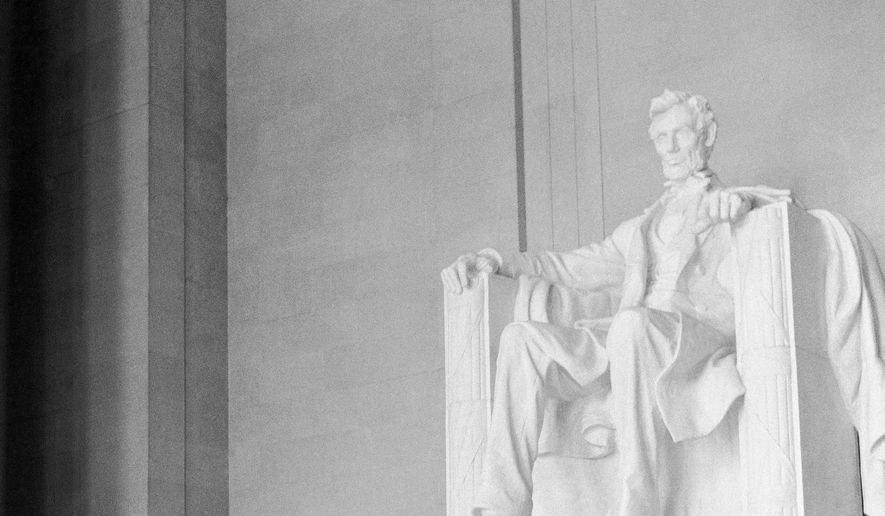OPINION:
In the midst of a deadly war tearing America apart at the seams, President Abraham Lincoln recognized the importance of expressing profound gratitude and relying on the Lord.
Lincoln, reflecting on a climactic Union Army triumph at Gettysburg, issued a powerful proclamation on Oct. 3, 1863, imploring the nation to celebrate a Thanksgiving holiday.
The statement, written by Secretary of State William Seward, is widely seen as forming the basis for America’s Thanksgiving Day tradition. But, beyond that, it’s a timeless clarion call we can still heed during the holiday season — and beyond.
Seward’s and the president’s powerful words came after tens of thousands of Americans died on the battlefield. Despite experiencing such a massive and traumatic loss, Lincoln and his administration recognized the importance of pausing to reflect on what mattered most.
First, the proclamation opened with an acknowledgment of the source of our blessings — something we should consider in our own lives as we come to the end of this year. Despite the pain and suffering caused by the perils and furor of the Civil War, thankfulness still abounded.
“The year that is drawing toward its close has been filled with the blessings of fruitful fields and healthful skies,” the proclamation read. “To these bounties, which are so constantly enjoyed that we are prone to forget the source from which they come, others have been added, which are of so extraordinary a nature that they cannot fail to penetrate and even soften the heart which is habitually insensible to the ever-watchful providence of Almighty God.”
Gratitude is something to which we must cling, even in the midst of the unthinkable. It fuels hope, persistence and survival, and that’s something Lincoln fully understood, even as he dealt with the potential of a very literal end to America as he knew it.
The last line about “Almighty God” also offers a powerful reminder. Even when chaos surrounds us, we can take solace in a loving God.
Lincoln’s statement went on to mention the blessings of increased population, natural resources and an abundance of freedom. Rather than acting as though these gifts came from the hands of man, the president attributed them to their natural source: God.
“No human counsel hath devised, nor hath any mortal hand worked out these great things,” the proclamation read. “They are the gracious gifts of the Most High God, who while dealing with us in anger for our sins, hath nevertheless remembered mercy.”
Beyond the recognition that God provides blessings, this portion of the proclamation also offers up a third lesson: Even when the Lord rebukes us for our sinful nature, he still offers His mercy.
At a time when America was dealing with the evils of slavery and the muck embedded in the deepest bowels of the human heart, Lincoln could still see how God was showering His love upon America.
We, too, must see the moments of pain caused by our own errors as opportunities to grow and lean into what the Lord wants to show and teach us. We must take a step of faith regardless of what’s happening.
And, finally, Lincoln implored his fellow citizens to come together “with one heart and one voice” to observe the last Thursday of November as “a Day of Thanksgiving and Praise to our beneficent Father who dwelleth in the heavens.”
This call was a truly humble one amid so much pain, death and destruction. Across America, people were truly suffering, terrified and uncertain about what might come next.
The president knew this reality and asked that those joining him in prayer would also hold up “the least of these” — those feeling the brunt of the pressures coming from the Civil War.
“I recommend to them that, while offering up the ascriptions justly due to Him for such singular deliverances and blessings, they do also, with humble penitence for our national perverseness and disobedience, commend to His tender care all those who have become widows, orphans, mourners or sufferers in the lamentable civil strife in which we are unavoidably engaged,” Lincoln continued.
He asked citizens to seek God’s help to “heal the wounds of the nation, and to restore it, as soon as may be consistent with the Divine purposes, to the full enjoyment of peace, harmony, tranquility and union.”
We too must seek such peace in our own lives as we struggle with others, deal with the ramifications of our own poor decisions and navigate through tough circumstances. Turning to prayer to heal wounds is essential.
Lincoln’s words remain as true today as they did in 1863. Let’s all collectively turn to God this holiday season as we seek healing for our families, communities and our beloved United States of America. As the past so powerfully demonstrates, it’s truly the only path forward.
• Billy Hallowell is a digital TV host and interviewer for Faithwire and CBN News and the co-host of CBN’s “Quick Start Podcast.” Mr. Hallowell is the author of four books.




Please read our comment policy before commenting.